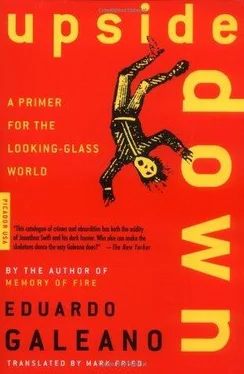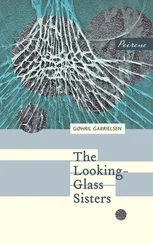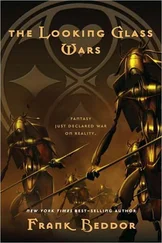An international embargo blocked new arms deals with Nigeria, but the Abacha dictatorship continued adding to its arsenal thanks to “addenda” that appeared miraculously on previously signed contracts. After a dip in this convenient fountain of youth, those old contracts lived on forever.

The United States sells about half the weapons in the world and buys about half the oil it consumes. Its economy and lifestyle depend to a large degree on arms and oil. Nigeria, the African dictatorship with the largest military budget, is an oil country. The Anglo-Dutch consortium Shell takes half that oil, and the U.S. company Chevron takes most of the rest. Chevron operates in twenty-two countries, but more than a quarter of all the oil and gas it pumps comes from Nigeria.

THE PRICE OF POISON
Nnimmo Bassey visited the Americas in 1996, a year after his friend and companion in the Ogoni struggle was murdered. In his travel diary, he recounts some telling stories about the giant oil companies and their contribution to public well-being.
Curaçao is an island in the Caribbean, so named, they say, because its breezes cure the sick. Shell built a huge refinery there in 1918 and has been showering poison on that little island of health ever since. In 1983, local authorities ordered the refinery shut down. Experts calculated the company owed a minimum of $400 million in recompense for damages to the environment, not counting damages to the inhabitants.

Shell didn’t pay a cent. It bought impunity for a fairy-tale price: Shell sold the refinery to the government of Curaçao, for one dollar, in an agreement that freed the company from all responsibility for damages inflicted on the environment at any time throughout history.
THE BLUE BUTTERFLY
In 1994, Chevron, formerly Standard Oil of California, spent many millions of dollars on an advertising campaign praising its tireless efforts to protect the environment in the United States. The campaign focused on a sanctuary the company built for certain blue butterflies in danger of extinction. The sanctuary costs Chevron five thousand dollars a year. Every minute of the advertising blitz that congratulated the company for its ecological conscience cost eighty times that sum to produce and much more than that to actually flutter its blue wings across the TV screens of North America.
The butterfly spa was set up next to the El Segundo refinery on the sands south of Los Angeles. The refinery remains one of the worst sources of water, air, and land pollution in all of California.
THE BLUE STONE
Goiânia City, Brazil, September 1987: two ragpickers find a metal tube in an empty lot. They break it open and discover a stone of blue light, a magic stone that turns the air blue and makes everything it touches shine. The ragpickers break up that stone of light. They give pieces to their neighbors. Whoever rubs it on his skin shines in the night. The entire barrio is a lamp. The poor, suddenly rich in light, celebrate.
The next day the ragpickers start vomiting. They had eaten mango with coconut — that must be why. But the whole neighborhood is vomiting and swelling up and itching. The blue light burns and devours and kills, and it spreads, carried by wind, rain, flies, and birds.
It was one of the greatest nuclear catastrophes in history. Many people died and many more were maimed for life. In that shantytown on the edge of Goiânia, no one knew what the word “radioactivity” meant, and no one had ever heard of Cesium-137. Chernobyl, just the year before, resounded daily in the ears of the world. Of Goiânia, not a word. In 1992, Cuba took in the sick children of Goiânia and gave them free medical care. This event did not merit the slightest coverage either, even though the global factories of public opinion are always, as we know, very concerned about Cuba.
A month after the tragedy, the chief of the federal police in Goiás summed it up: “The situation is absurd. No one is responsible for the radioactive substances used in medicine.”

BUILDINGS WITHOUT FEET
Mexico City, September 1985: the earth trembles. A thousand houses and buildings tumble in less than three minutes.
It isn’t known, and never will be, how many people died in that moment of horror in the largest and most fragile city in the world. When they first started digging through the rubble, the Mexican government said five thousand. Later on it said nothing. The first bodies recovered carpeted an entire baseball stadium.
Old buildings withstood the earthquake, but new ones fell as if they had no foundations, because many of them had none or they had them only in the blueprints. Years have passed and those responsible remain untouched. The developers who built and sold those modern sand castles, the officials who issued permits for skyscrapers in the most sunken parts of the city, the engineers who lied murderously when calculating the foundations and the load, the inspectors who got rich by looking the other way — all of them remain untouched.
The rubble is gone, new buildings have arisen on the ruins, the city keeps on growing.

GREEN, I WANT YOU GREEN
The earth’s most successful companies have offices in hell and in heaven too. The more they sell in one, the better they do in the other. The Devil pays and God forgives.
According to World Bank projections, by the year 2000 the environmental industry will be making more money than the chemical industry, and it already makes a bundle. Saving the environment is turning out to be the most brilliant enterprise of the very companies that are destroying it.
In a recent book, The Corporate Planet, Joshua Karliner offers three telling examples, well worth studying:
• General Electric, which owns four of the companies that most poison the air, is the largest U.S. producer of equipment for air pollution control
• Du Pont Chemical Company, one of the largest producers of toxic waste in the world, has developed a lucrative line of specialized services for incineration and disposal of toxic waste
• and another multinational giant, Westinghouse, which earns its keep selling nuclear weapons, also sells millions of dollars’ worth of equipment to clean up its own radioactive waste.

SIN AND VIRTUE
There are over a hundred million antipersonnel mines spread throughout the world. These artifacts keep exploding years after wars are over. Some mines, shaped like dolls or butterflies or colorful trinkets, are designed to attract children. Of all the victims, half are children.
Paul Donovan, one of the promoters of the global campaign to ban land mines, points out that a new goose is laying golden eggs in the very same arms factories that made and sold mines. These companies now offer their expertise to clean up the vast terrains that have been mined, and it doesn’t take a genius to realize that no one knows the business as well as they do. What a deal: removing the mines turns out to be a hundred times more lucrative than placing them.
Читать дальше

















